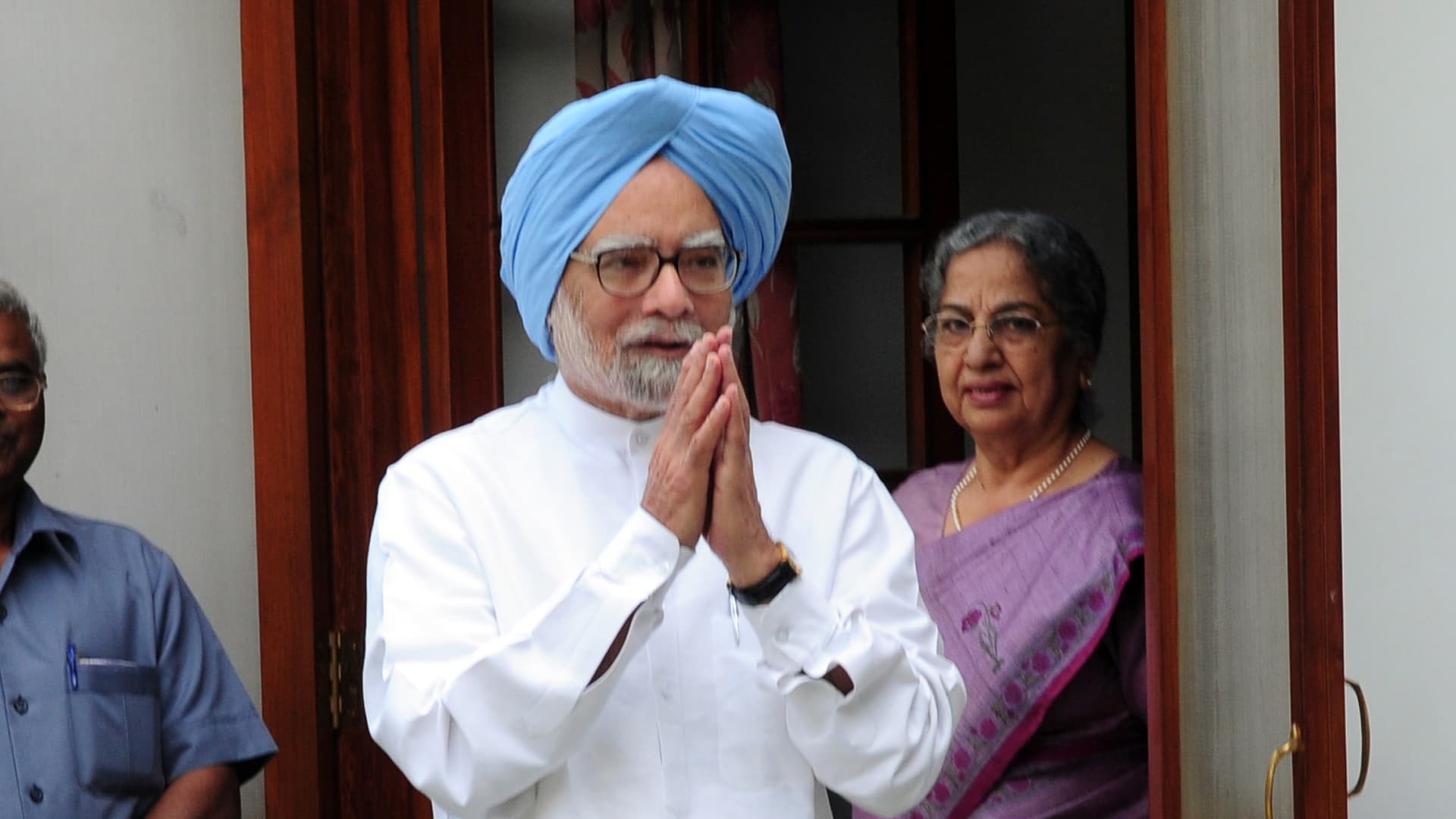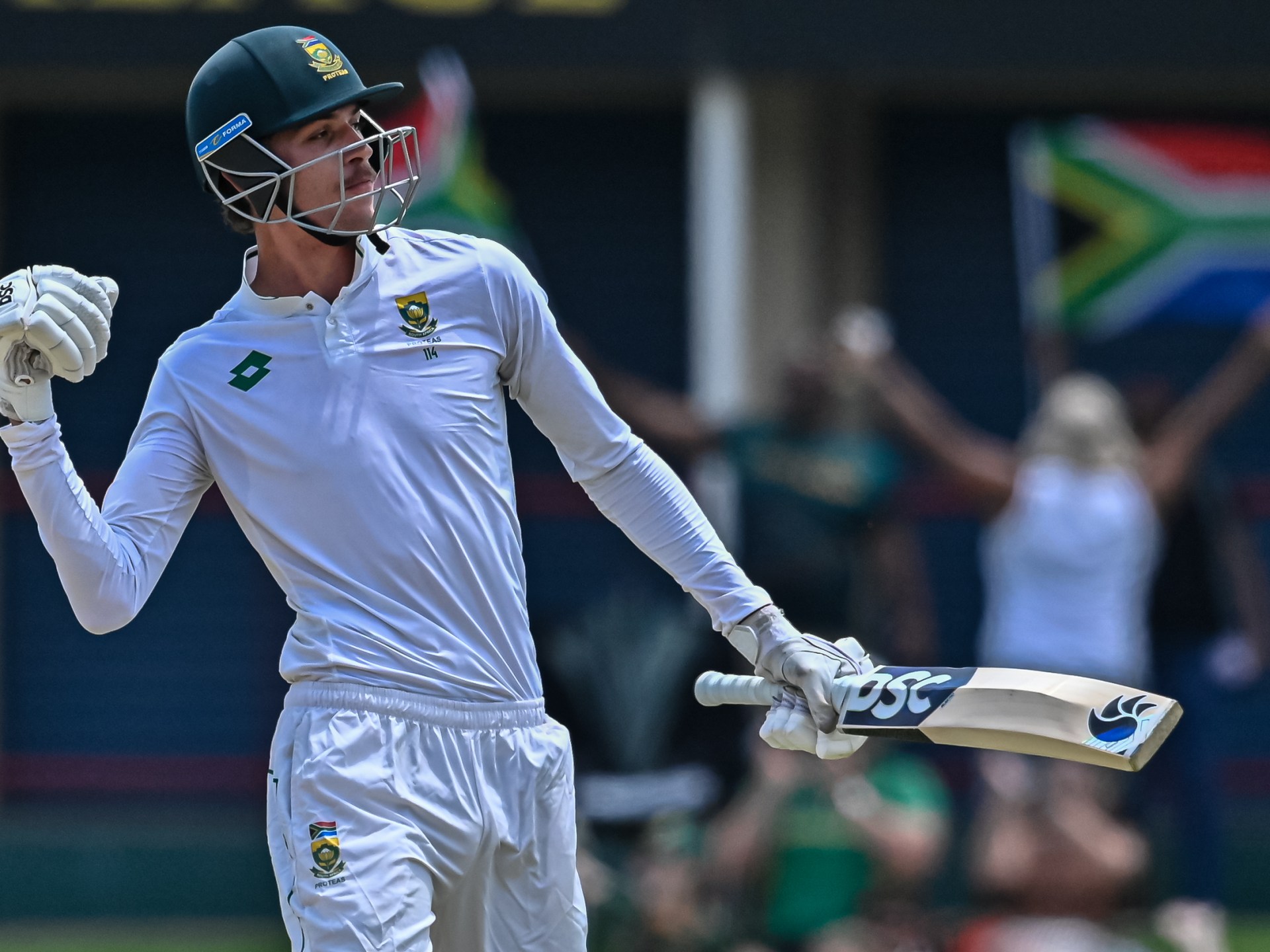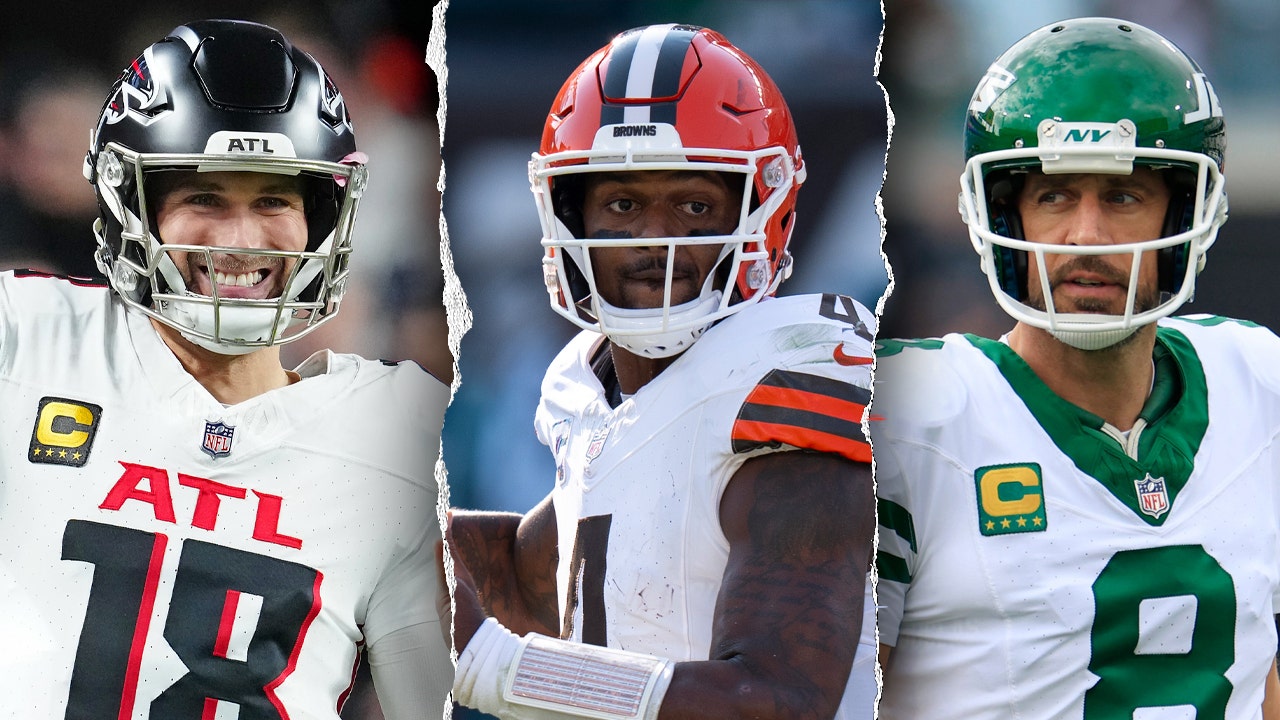Former Indian Prime Minister Manmohan Singh arrives with his wife Gursharan Kaur to launch the Congress Party’s online membership drive and app in New Delhi on March 30, 2015.
Money Sharma | AFP | Getty Images
The death of former Indian Prime Minister Manmohan Singh on Tuesday at the age of 92 sparked a wave of condolence messages and tributes from political leaders of both parties and industry giants.
Prime Minister Narendra Modi described Singh as one of India’s “most prominent leaders” in a post on X. Modi’s Bharatiya Janata Party defeated Singh’s Congress alliance in the 2014 elections and has been in power ever since.
Modi added that Singh was a “respected economist” who left a “strong imprint” on India’s economic policy.
Before becoming Prime Minister in 2004, Singh served as Governor of the Reserve Bank of India in 1982 and Finance Minister in 1991.
As Finance Minister, he led a series of reforms that liberalized the Indian economy and opened the country to foreign investment.
Facing a severe balance of payments crisis, the then Prime Minister B. V. Narasimha Rao and Singh liberalized the economy, paving the way for its rapid expansion in the following decades.
“History will forever honor his pivotal role in the transformative 1991 reforms that reshaped India and opened its doors to the world,” wrote Gautam Adani, India’s second-richest person and chairman of the Adani India conglomerate.
Singh returned to politics in 2004 when a Congress-led coalition swept the elections, and party leader Sonia Gandhi appointed him prime minister.
Under his tenure between 2004 and 2014, India’s GDP expanded rapidly at first, allowing Singh to put the new wealth into programs such as the National Rural Employment Guarantee Act, which guaranteed jobs for the poor.
However, the final years of Singh’s tenure as Prime Minister were marred by sclerotic growth, stalled reforms, and allegations of corruption against some members of the government.
Singh played a pivotal role in strengthening India’s relations with Washington, as he visited the United States several times as Prime Minister. In 2006, when US President George W. Bush visited India, Singh was able to broker a deal that gave India access to US nuclear technology.
“Dr. Singh was one of the greatest champions of the US-India strategic partnership, and his work laid the foundation for much of what our countries have accomplished together in the past two decades,” the US State Department wrote on Singh’s death.
Besides the US, Singh also worked to strengthen India’s relations with Russia. He was regularly present at the annual summit between India and Russia, which began in 2000 and aims to deepen cooperation between the two countries and among the BRIC countries.
“Dr. Manmohan Singh’s contribution to our bilateral relations has been invaluable,” Russian Ambassador to India Denis Alipov said on X.




